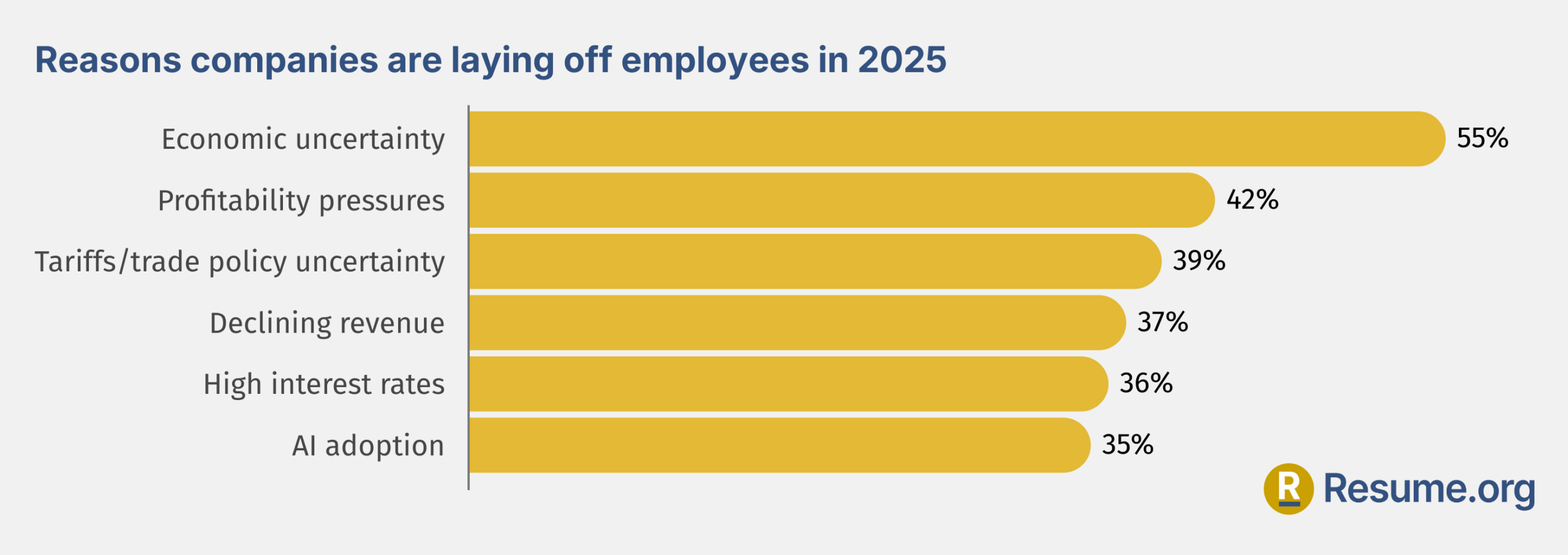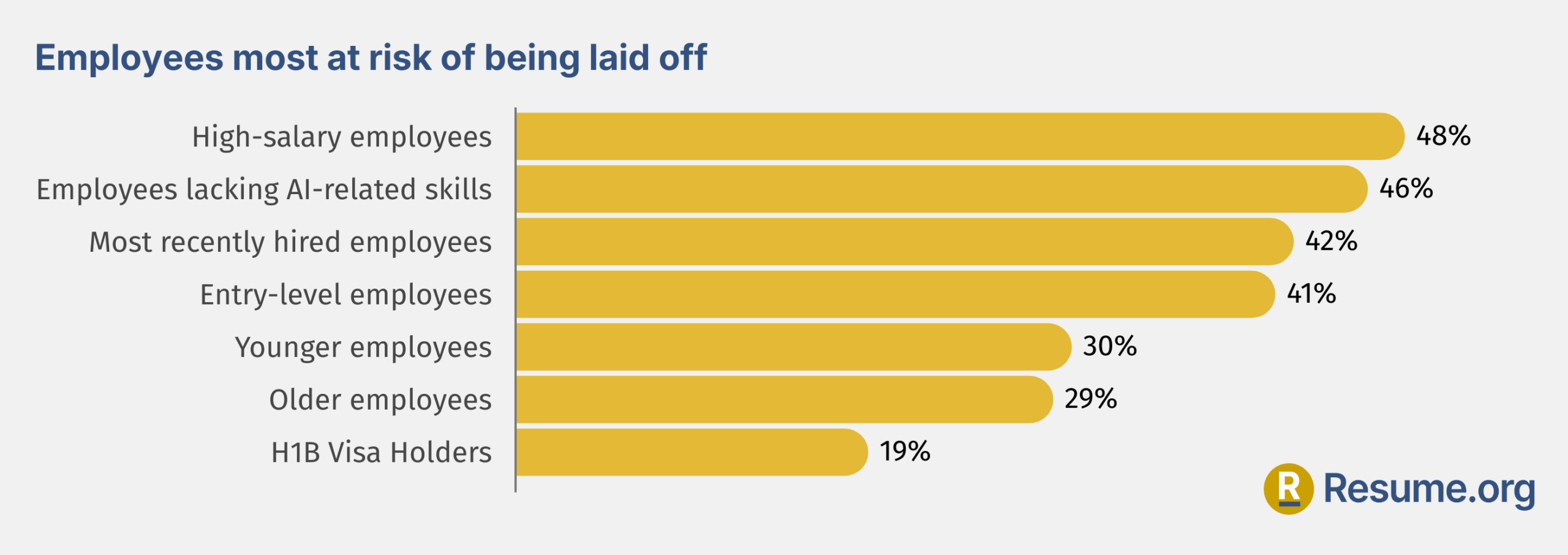In September, Resume.org surveyed 1,000 U.S. business leaders about their hiring and workforce plans for 2025 and beyond. The results reveal widespread caution, with many companies freezing or slowing hiring, conducting layoffs, and preparing to replace workers with AI.
Takeaways:
- 1 in 10 companies have implemented a hiring freeze, and 41% have cut back on hiring
- 4 in 10 companies have laid off employees in 2025
- 1 in 3 companies will lay off workers before the end of the year
- Economic uncertainty, trade policy, and AI adoption are the top reasons for reductions in hiring
- 6 in 10 companies will likely lay off employees in 2026
- 4 in 10 companies plan to replace workers with AI by 2026
Half of Companies Have Cut Back on Hiring
Nearly half of companies are pulling back on hiring, with 9% implementing a hiring freeze and 41% cutting back on hiring. Meanwhile, 41% have maintained typical hiring levels, and just 9% report they’ve ramped up on hiring.
Among companies that have cut back on hiring, the most common reason is economic uncertainty, cited by 63%. Tariffs and trade policy concerns follow at 38%, while 35% blame declining revenue. Another 22% say investments in AI are lowering their staffing needs.
1 in 3 Companies Will Lay Off Workers Before Year’s End
In 2025, 39% of companies have already conducted layoffs. Looking ahead, 35% expect to reduce headcount before the year ends.
Among companies that have conducted or plan to conduct layoffs this year, 55% cite economic uncertainty as the leading factor. Another 39% point to tariff or trade policy concerns, and 35% say AI adoption is reducing staffing needs.

Next year, 58% of companies say layoffs are very (26%) or somewhat (32%) likely. Key drivers include tariff or trade policy concerns (48%) and the overall economy (47%).
High-salary employees and those lacking AI skills are most at risk
Companies report that certain groups of workers are more vulnerable to layoffs than others. Nearly half (48%) say high-salary employees are the most at risk, followed closely by 46% who point to employees lacking AI-related skills. Recently hired workers (42%) and entry-level employees (41%) also face heightened risk.
Generational factors play a role as well: 30% of companies say younger employees are more likely to be affected, while 29% cite older employees. Additionally, 19% report that H1B visa holders are at greater risk of layoffs.

“High-salary roles are often targeted first because companies see immediate savings in payroll, and employees lacking AI-related skills are vulnerable because organizations are accelerating automation,” says Kara Dennison, head of career advising at Resume.org. “Recent hires and entry-level employees are also at risk because they haven’t built deep institutional knowledge or proven long-term value. Demographic factors also play a role: younger employees may be seen as replaceable, older employees may be viewed as less adaptable, and visa holders bring added administrative costs.
“There is a push toward leaner, more tech-ready workforces where cost efficiency and agility outweigh tenure or traditional career pathways. For professionals, this is a call to start reskilling, especially in AI and emerging technologies,” Dennison adds.
4 in 10 Companies Will Replace Workers With AI by 2026
AI adoption is accelerating in the workplace. In 2025, most companies increased their investment in AI, with 27% reporting a significant increase and 41% noting a slight increase.
Nearly three in 10 companies say they have already replaced jobs with AI this year. Looking ahead, 37% expect to replace roles with AI by the end of 2026.
“AI adoption is going to reshape the job market more dramatically over the next 18 to 24 months than we’ve seen in decades. We’ll see continued displacement of routine and process-driven roles as well as entirely new categories of work centered on AI oversight, data ethics, prompt engineering, and human-AI collaboration,” says Dennison.
“Technical skills alone won’t be enough; adaptability, critical thinking, and emotional intelligence will become the defining differentiators for talent. To future-proof their careers, professionals should be building both digital fluency and human skills that AI can’t replicate,” Dennison adds. “For organizations to maintain engagement and retention, they must upskill their workforce and prepare employees to work alongside AI. Those that treat AI as a cost-cutting tool without reinvesting in their people risk eroding culture, trust, and long-term competitiveness.”
Resume.org commissioned this survey, which was conducted online via Pollfish in September 2025. A total of 1,000 U.S. business leaders participated. Respondents were screened to confirm they hold management-level positions and are knowledgeable about hiring and workforce planning decisions. The sample included leaders from a wide range of industries and company sizes to ensure diverse perspectives.
Resume.org offers free, HR approved resume templates to help you create a professional resume in minutes. Choose from several template options and even pre-populate a resume from your profile.